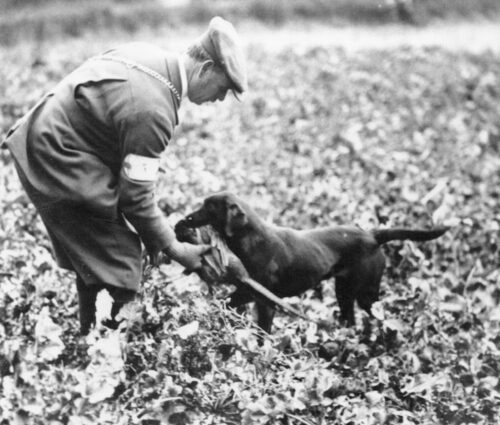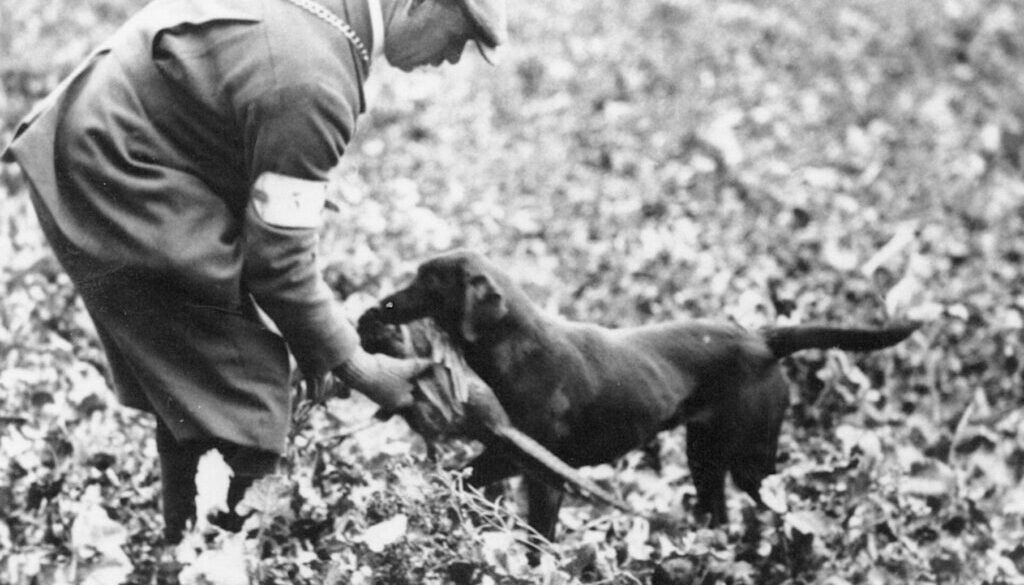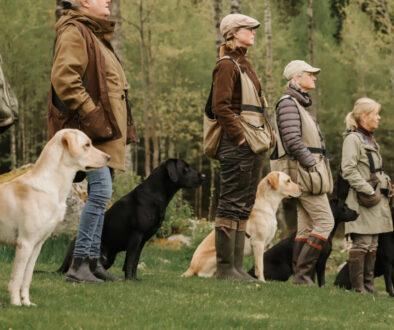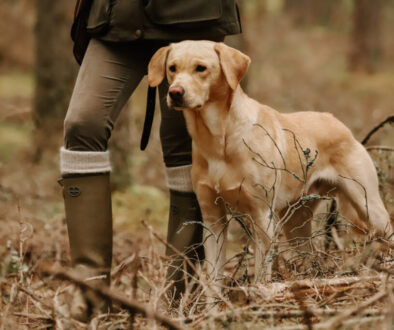Code of best practise
Det här skickas tillsammans med field trial schemat från klubbarna i UK. Det är The Kennel Clubs text och jag kopierar in den här och jag tycker att alla skall läsa igenom den. Inte bara läs det – efterlev det. Läs alltihop från början till slut!
CODE OF BEST PRACTICE FOR RETRIEVER FIELD TRIAL COMPETITORS
The Kennel Club Field Trial Regulations, sometimes known as the J Regulations, are vital reading.
No competitor should enter a field trial unless they are fully conversant with the current Kennel Club
Field Trial J Regulations relevant to Retrievers:-
https://www.thekennelclub.org.uk/media/3465/field-trial-j-regulations.pdf
Regulation J(B) Retrievers
This section lays out what is required from your dog in a field trial for Retrievers. It is important to
understand these requirements. Take note of the eliminating and major faults under Regulations
J(B)5. and J(B)6., respectively. Does your dog repeatedly show any of these traits?
Is it ready to trial?
If you are in doubt, seek a Panel judge’s advice. Email gundogs@thekennelclub.org.uk for the
current list of Kennel Club Official Panel of Field Trial Judges.
J Regulations Training Programme. This programme has been created to manage the understanding of the J Regulations for field trial judges, societies and competitors. This is done through a seminar
followed by an optional multiple-choice exam. Attending a seminar is strongly recommended.
Even if a candidate refrains from taking the examination, they should find the seminar useful and beneficial.
The seminar script for the Retriever sub-group is available on The Kennel Club website:
ft26-seminar-script-for-retriever-ft-judges.pdf (thekennelclub.org.uk)
Success in working tests does not mean your dog is suitable to be trialled.
Working tests are great fun and a good benchmark to see how you and your dog are progressing. It also enables you and your dog to get used to competing in company and under the scrutiny of the judges, as well as being
watched by other people.
Although working tests and field trials are ‘poles apart’, if a dog does not
handle well on dummies, in most cases it is unlikely to handle proficiently on live game.
Offering to help (or request to view) before entering your first field trial is highly advised. Find out if there are any trials taking place near you.
You learn so much from watching both handlers and dogs, and asking questions.
Contact the Field Trial Secretary prior to the trial.
Email jan.wiberg@gerflor.com for a list of all the field trial dates.
Before you enter a driven Retriever field trial, ensure that your dog has been shot over, or at least
has sat near a gun so you know it is steady when birds fall close by, especially when they drop on
open ground.
Handler and dog must have had plenty of experience picking warm freshly shot game. This
includes picking wounded birds.
Standards will be expected. Do not enter a field trial if you know your dog persistently commits any
eliminating or major faults. A field trial is a competition not a training day.
Dress appropriately. Wear conventional and acceptable clothes. No bright colours or denim jeans and no white baseball caps. Looking tidy and presentable in muted or neutral country attire shows respect for the event and the landowners. This is a country sport.
Manage your expectations. The extra pressure and nerves of working under a judge can affect your
decision making and handling.
Mistakes often occur through ‘pilot error’ so be ready for disappointments.
Never publicly impugn decisions of the judge or judges.
Neither should you
criticise the host, ground or guns.
If you are not sure why you have been put out of the trial, have a
word with the judges at the end of the trial when they have completed their official duties.
Questions should be restricted to the performance of your dog and not the dogs of other
competitors.
Social media should never be used to discuss grievances.
Should you be put out of the trial. You must not leave the trial ground without the permission of a
judge or Chief Steward.
You will learn from watching, if you are able to stay.
When you win a Novice Trial, you have a Novice Trial Winner.
Should your dog win after a couple of
trials and, especially if it is young, it is most likely to need more ’miles on the clock‘ before you
consider entering it in Open field trials.
Competing in All Aged Stakes with a Novice Trial Winner is an
ideal way of giving an inexperienced dog (and handler) invaluable proficiency before you consider
entering it in Open field trials.
A higher standard of work is expected in all open stakes, which carry a qualification for the title of
Field Trial Champion.
Harsh handling of dogs will not be tolerated.
The welfare of your dog is your responsibility. You may need to carry drinking water, especially in
hot weather.
Likewise, you may have to consider taking an appropriate dog coat for protection from
wet and cold as well as from the sun.
Have a drying towel in your vehicle should your dog need to be
dried off before you drive home.
Any concerning issues you may see at a Trial should be reported to the Chief Steward on the day, if possible.
Be respectful at the end of a Trial. A lot of people will have given their time to make your day take
place.
Regardless of what has happened to you, it is good manners to thank the judges, the keeper
and the host/landowner, and the Field Trial Secretary. It is important not to forget the guns. They may have paid for the day.
To say ’thank you‘ costs nothing, but goes a long way. Show good
sportsmanship by congratulating the winner and those in the awards.
THE FOLLOWING TARGETS ARE VOLUNTARY AND SELF-ADMINISTERED, AND SOMETHING NOVICE
HANDLERS CAN STRIVE TO ACHIEVE BEFORE ENTERING A FIELD TRIAL.
THE PURPOSE OF THESE TARGETS IS TO GET NOVICE HANDLERS TO READ THE J REGULATIONS TO
GAIN A BASIC UNDERSTANDING OF THE RULES OF THE COMPETITION THEY PROPOSE TO ENTER.
THIS WILL ALSO ENCOURAGE HANDLERS TO TAKE A DOG OUT ON A PROPER SHOOTING DAY
INSTEAD OF JUST RELYING ON A FEW TRAINING DAYS, WHICH MAY GIVE A FALSE IMPRESSION OF
THEIR DOG’S ABILITY AND SUITABILITY FOR FIELD TRIALS.
TARGETS TO ACHIEVE BEFORE ENTERING A FIELD TRIAL
The handler:
• • Attends a Kennel Club seminar on J Regulations.
• • Helps at a Kennel Club licensed field trial on three separate occasions.
• • Helps on an organised shoot as a picker up for a minimum of one season.
The dog:
• • Has worked on an organised shoot as a picking up dog for a minimum of one season before
being entered in a field trial (training days do not qualify).
• • Has no recurring eliminating faults and has had sufficient experience on live game before
being entered into a field trial.
The Kennel Club recommends that these targets are achieved before entering a licensed field trial


